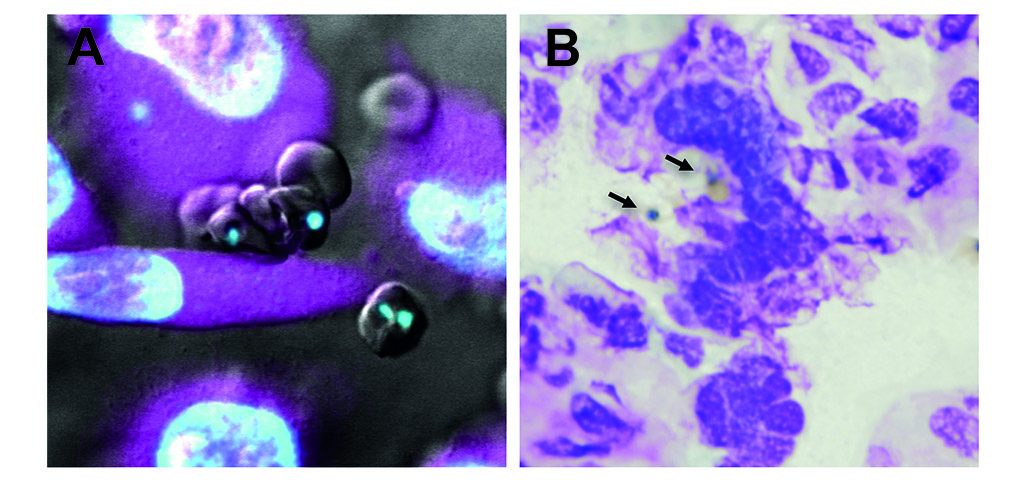Immune Responses to VIR Proteins of Plasmodium vivax Are Detected Among Pregnant Women from Five Different Countries
The study shows that some of these antibodies are associated to higher birth weights and paves the way to develop a vaccine against vivax malaria
05.10.2016
Malaria caused by the Plasmodium vivax parasite (vivax malaria) is not the most deadly version of the mosquito-borne disease, but can cause low birth weight and other complications in pregnant women. A team led by ISGlobal researchers Carlota Dobaño and Hernando A. del Portillo (ICREA fellow), has studied the prevalence of antibodies to a family of P. vivax proteins among pregnant women in five countries. The results, published in PLoS Neglected Tropical Diseases, show an association between certain antibodies and higher birth weight, and could further efforts to develop a P. vivax vaccine.
P. vivax is the most widely-spread of the malaria parasites, infecting people in Africa, Asia, and Latin and South America. 2.65 billion people are at risk of contracting the disease, with a single bite from an infected mosquito leading to many relapses. However, vivax malaria has historically been understudied compared to P. falciparum, the deadliest of the five human malaria parasites.
The authors of this study had previously identified VIR proteins, produced by the P. vivax parasite, as being virulent factors likely involved in the pathogen’s ability to infect humans. Here, their aim was to determine whether pregnant women with P. vivax exposure had naturally-acquired antibodies and cellular responses to any of the VIR proteins produced in vitro for this study, and whether there was any association between levels of these immune markers and pregnancy outcomes.
The study was conducted within the framework of the multi-center PregVax project, coordinated by Clara Menéndez, director of the Maternal, Child and Reproductive Health Initiative at ISGlobal, and aimed at describing the burden of P. vivax during pregnancy. The researchers studied blood samples collected between 2008 and 2012 from 1,056 pregnant women in Guatemala, Colombia, Brazil, India, and Papua New Guinea, countries where P. vivax is endemic. They then used five VIR proteins cloned directly from malaria parasites as well as two long synthetic peptides corresponding to conserved domains of VIR proteins (PvLP1 and PvLP2) to test each blood sample for levels of anti-VIR antibodies and T cell responses.
Significant levels of anti-VIR antibodies were detected in women from all five countries, suggesting that the VIR proteins are important mediators of the immune response to vivax malaria and potentially good targets for vaccines. Women who had been more frequently infected with P. vivax, lived in countries with the highest burden of the parasite, or had been co-infected with P. vivax and P. falciparum, had higher levels of anti-VIR antibodies. The researchers went on to show associations between these antibodies and higher birth weight. In addition, they detected T cell responses against PvLP2 in blood samples from Papua New Guinea, demonstrating that these epitopes trigger the natural acquisition of cellular memory immune responses to P. vivax.
“Based on our findings and the large burden of vivax malaria, we believe that larger cohort studies are needed to specifically address whether VIR-based antigens induce protective immunity against P. vivax parasites and whether they could be considered as candidates for vaccine development towards malaria elimination” says Pilar Requena, first author of the study.
Referencia:
Pilar Requena, Edmilson Rui, Norma Padilla, et al. Naturally-Acquired Antibody and T Cell Immune Responses to Malaria in Pregnant Women. PLoS Negl Trop Dis, 2016



